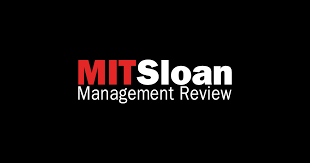
Informed i’s Weekly Business Insights
Extractive summaries and key takeaways from the articles carefully curated from TOP TEN BUSINESS MAGAZINES to promote informed business decision-making | Since 2017 | Week 392 | March 14-20, 2025 | Archive

Leaders’ Critical Role in Building a Learning Culture
By Henrik Saabye and Thomas Borup Kristensen | MIT Sloan Management Review Magazine | Spring 2025 Issue
Extractive Summary of the Article | Listen
3 key takeaways from the article
- Organizational learning and adaptation are vital to business survival and success in the face of disruptive technological advancements, increasing environmental challenges, and rapidly shifting customer demands. Yet many business leaders overlook their critical role in facilitating learning, especially when new initiatives demand it at scale.
- To understand how leaders can become effective learning facilitators, the authors conducted two longitudinal studies at Lego, a leading toy company, and Velux, a global leader in manufacturing skylights and roof windows. Their research highlights a key insight: To become effective learning facilitators, leaders must embrace the counterintuitive approach of going slow to go fast. This principle underscores the impact of deliberate, thoughtful leadership in driving lasting change by focusing on building employees’ learning and problem-solving skills.
- At both companies, leaders embraced the role of learning facilitators and actively prioritized the development of employees’ systematic problem-solving abilities through A3 thinking that requires leaders to shift from imparting knowledge to fostering inquiry. Leaders who act as learning facilitators encourage employees to set goals and derive conclusions by asking insightful questions rather than dictating answers.
(Copyright lies with the publisher)
Topics: Strategy, Learning Organization, Teams, Lego, Velux, Toyota, A3 Thinking
Click for the extractive summary of the articleOrganizational learning and adaptation are vital to business survival and success in the face of disruptive technological advancements, increasing environmental challenges, and rapidly shifting customer demands. Yet many business leaders overlook their critical role in facilitating learning, especially when new initiatives demand it at scale.
During organizational transformations, leaders often delegate the learning component of change management to learning and development specialists inside and outside the company. While this approach can bring teams up to speed with new ways of working in the short term, it occurs outside the context of the work itself in a classroom or workshop setting and doesn’t build a capacity for ongoing organizational learning from the work, including the ability to analyze and solve problems from which learning emerges.
To understand how leaders can become effective learning facilitators, the authors conducted two longitudinal studies at Lego, a leading toy company, and Velux, a global leader in manufacturing skylights and roof windows. Their research highlights a key insight: To become effective learning facilitators, leaders must embrace the counterintuitive approach of going slow to go fast. This principle underscores the impact of deliberate, thoughtful leadership in driving lasting change by focusing on building employees’ learning and problem-solving skills. At both companies, leaders embraced the role of learning facilitators and actively prioritized the development of employees’ systematic problem-solving abilities. By framing each problem as an opportunity for growth, leaders encouraged employees to approach problems with a focus on strengthening long-term skills rather than just resolving the issue at hand.
At both Lego and Velux, leaders first needed to recognize that they could achieve meaningful transformation through learning processes rooted in active engagement with real-world problems alongside their employees. This realization required leaders to slow down and create the space to facilitate their teams’ learning processes — a counterintuitive yet crucial approach to solving problems effectively.
The four-stage problem-solving journey begins with finding the problem and actively seeking out areas for improvement. This requires a cultivated sense of curiosity and heightened awareness to identify issues and opportunities. Keen observation and attentive listening to customer and stakeholder feedback are essential at this stage to ensure no critical insights are overlooked.
The next step is facing the problem — that is, confronting challenges directly and embracing their complexities with courage and curiosity. By tackling issues head-on, teams gain a deeper understanding of their root causes, building a foundation for effective, lasting solutions.
The third phase, framing, involves defining and clarifying the problem in a structured way. This stage calls for breaking down the issue, analyzing its components, and identifying root causes. Framing requires thorough research, data collection, and stakeholder engagement to uncover diverse perspectives that enrich the analysis.
Finally, the focus shifts to forming solutions. Based on insights from the previous phases, teams generate and implement solutions that are both creative and evidence-based. This step relies on critical thinking, brainstorming, hypothesis testing, and iterative refinement. By actively engaging in this problem-solving cycle, teams can learn from successes and setbacks, and embed continuous improvement into the organizational culture, all the while demonstrating the value of going slow to go fast in solving complex problems.
Developing employees into adept problem solvers through A3 thinking requires leaders to shift from imparting knowledge to fostering inquiry. Leaders who act as learning facilitators encourage employees to set goals and derive conclusions by asking insightful questions rather than dictating answers. This approach promotes autonomy, involvement, and engagement by letting employees tackle challenges independently; they’re supported by enabling processes rather than directive control.
By embracing inquiry-driven group coaching, Lego and Velux are nurturing leaders who are skilled in facilitating learning and fostering a culture of reflective problem-solving. This approach enables organizations to harness the collective intelligence of their teams, navigate complexity with resilience, and drive sustainable growth.
show less